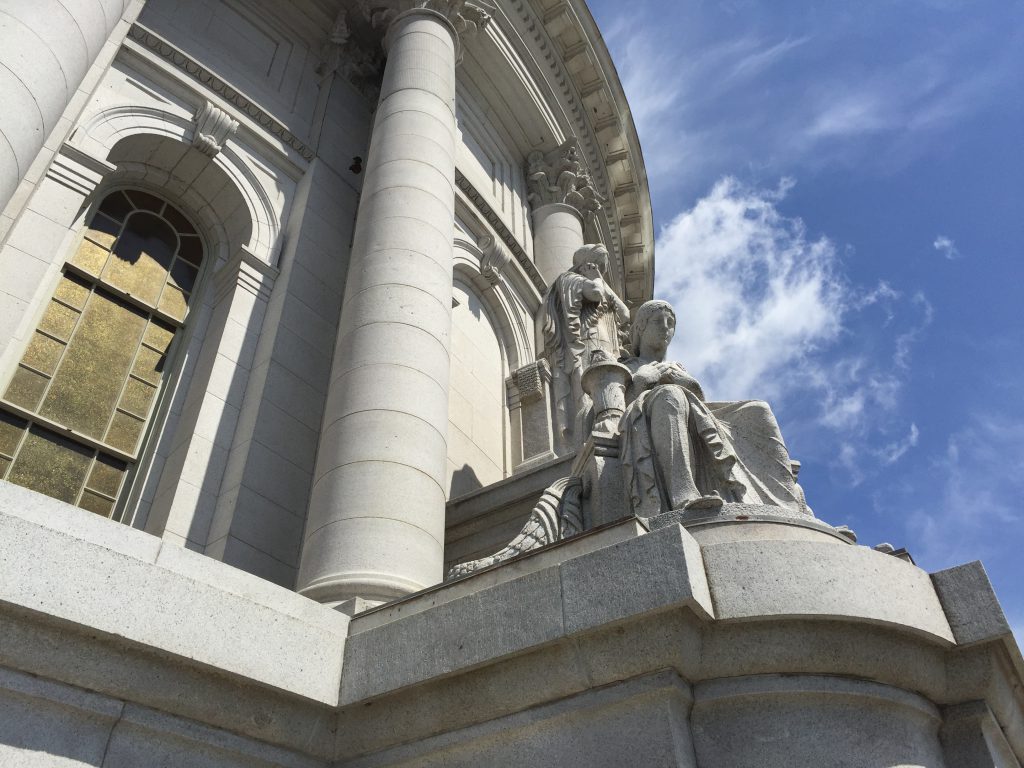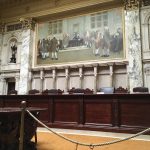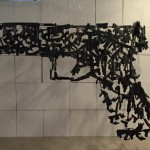GOP Bills Restrict University Teaching
Barring critical race theory, diluting ethnic course requirements, ending administrators’ immunity from lawsuits.
A bill to prevent university administrators from stifling conservative speech, a bill to count classes on the U.S. Constitution and Bill of Rights as credit toward diversity and ethnic studies course requirements and a bill banning critical race theory from college campuses all received a public hearing on Thursday.
In the hearing of the Senate Committee on Universities and Technical Colleges, several conservative college students gave testimony saying they felt like they were unable to speak up about their views in a variety of classes while university professors said the bill banning critical race theory would have a chilling effect on campus speech and academic freedom.
In the hearing, the committee heard testimony on Senate Bill 792, which was authored by Sen. Duey Stroebel (R-Saukville) and Assembly Speaker Robin Vos (R-Burlington). The bill states that if a university has a general education requirement that students take a course in diversity or ethnic studies, then a class on the Constitution and Bill of Rights should satisfy that requirement.
“America’s founding documents show the great aspiration for equality and opportunity for all, alongside where America did fall short of its aspirations,” Stroebel said.
Democrats on the committee questioned Stroebel, asking if he wants these classes to only teach the text of the documents or put them into context and discuss how they allowed for slavery and the disenfranchisement of most Americans. John Zumbrunnen, vice provost for teaching and learning and a political science professor at UW-Madison, said any good college course would go in depth on the ideas that guided America’s founding and how the documents were used then and how they’re used today — rather than a “straight up” teaching of what the documents say.
“I don’t think that would be an interesting or engaging college level course,” Zumbrunnen said.
The committee also heard testimony on another Republican authored bill that would allow students to sue university administrators if they feel like their right to free speech is being stifled. A line of conservative students spoke, talking about how they felt uncomfortable sharing their political views in class or in an assignment for fear of retribution or bad grades.
“Colleges and universities were founded to be a place to share ideas, thoughts and beliefs for the betterment and progress of our society,” Rep. Clint Moses (R-Menomonie), one of the bill’s co-authors, said. “It is all too common on college campuses for students’ ideas to be silenced if they’re not the same as a professor class or student organization. Senate Bill 837 will ensure that university administrators who violate free speech of students are held responsible for these violations.”
After a large amount of testimony in favor of this bill, the committee later took up the bill on critical race theory.
The bill’s original language completely bans “instruction to students that promotes race or sex stereotyping in any course or as part of any curriculum and shall not require an employee to attend a training that teaches, advocates, acts upon, or promotes race or sex stereotyping.” The bill requires course syllabi to be posted online and comes with 10% reduction in state funding if it is violated.
The amendment passed unanimously in the Assembly Committee on Colleges and Universities but has not yet received a vote in the Senate committee.
Joe Cohn, legislative and policy director of the Foundation for Individual Rights in Education (FIRE), a free speech organization, said that while he was completely opposed to the bill as originally written, he is in support of the bill’s defense of academic freedom.
“The original version dealt with all these divisive concepts and said you can’t teach these things,” Cohn said. “One thing that I actually like, which is the only reason why I’m entertaining instead of going from oppose to neutral to oppose to support, is because of the provision on academic freedom. Which is the strongest one that I’ve seen anywhere in the country.”
While Cohn said he can support the bill because of its defense of academic freedom, Zumbrunnen said UW-Madison was against even the amended version of the bill because it could chill free speech.
“We aim to graduate alumni who are well rounded critical thinkers, we try to teach them not what to think but how to think,” he said. “Our ability to do that, and to attract and retain world class faculty and staff depend on a thriving, sometimes contentious marketplace of ideas, shaped by our commitment to academic freedom and freedom of speech.”
Sen. Chris Larson (D-Milwaukee) questioned how Republicans could, in the same hearing, bring a bill aimed at protecting speech on campus and a bill preventing certain topics from being discussed on campuses.
“If I believe the intent of the overall legislation was trying to be able to say that students should be exposed to a diversity of opinions, how uncomfortable they may be, this seems like this is like a safe space bill right?” Larson said. “If you feel funny or feel like you are targeted or you feel bad — or a person is indirectly feeling bad because history is taught to them. How is that not eliminating the idea that our university system is supposed to expose our students to uncomfortable truths, uncomfortable history, and frankly, be able to make sure that they understand the history of the world?”
Senate bills protect conservative speech, ban critical race theory was originally published by the Wisconsin Examiner.






















Isn’t there a chance that a part of the Republican base will find this message a little too subtle? Why not just require all incoming freshmen at al public universities in Wisconsin to take a course with a title something like: Society 101: White People #1/White People Still the Best Race. After all, that’s what it’s really all about, right? And, it would be easy to find faculty willing and ready to teach the course. ¾ of the Republicans in the legislature would jump at the chance.
What a freaking crock! University is a unique time when I hope most students will have my experience of learning about tons of stuff of which I was ignorant. And, made life long friends in the process…and expanded my horizons.
Isn’t that what learning should be all about????????
Why not require BOTH classes—or neither…?
Just when I think they can’t sink any lower, they confound me.
Despicable.
It’s the equivalent of keeping em barefoot and pregnant.
I smell the odorifious presence of ALEC in these bills. make no mistake, these efforts aim to restrict free exchange of ideas on campus. Now we have a popcorn vendor deciding curriculua in our once-great university system….sheesh!
Students with conservative views have the right to organize in groups large and small. Perhaps, if they were in a group of like-minded fellows, they would build confidence enough to speak up and defend their arguments with facts and develop an intelligent argument. That would be a useful contribution, an education, for all. The dialogue created by open communication would be welcome, I should think, at any credible university. There’s no need to create laws to restrict thinking, restrict dialogue, or isolate students who are uncomfortable. If students have interesting ideas, regardless of their political persuasion, we need to hear them and they need to be ready to deal with the reactions to their ideas. A school isn’t “progressive” because it has only one persuasion. It’s progressive because it’s open to all ideas.
The Wisconsin State Assembly bill prohibits students from being required to take training that discusses the harms of racism.
April 28, 2021 – Governor Evers signs Wisconsin State Assembly Senate Bill 69 that requires instruction on “the Holocaust” and other genocides to be incorporated into the social studies curriculum at least once in grades 5 to 8 and at least once in grades 9 to 12 by public school districts, independent charter schools, and private schools participating in a parental choice program.
The entire curriculum for this instruction will be written by the US Holocaust Memorial Museum, the Holocaust Education Resource Center in Milwaukee, the Illinois Holocaust Museum, the Shoah Foundation, Yad Vashem, and the Anti-Defamation League, according to Wisconsin’s Department of Public Instruction.
Can’t understand why Wisconsin’s legislators would require every student in Wisconsin to learn about the 6 year long Holocaust in Europe during WWII but not America’s 400 year long Holocaust and ethnic cleansing of Native Americans and America’s 400 year long Holocaust and slavery of African Americans.
“As to the evil which results from censorship, it is impossible to measure, for it is impossible to tell where it ends.”
-Jeremy Bentham
Yet *another* solution in search of a problem from the GOP nitwits.
If students’ ideas are being silenced, if the founding documents are being neglected, if conservatives are being stifled, how did Andre Jacque, Glenn Grothman, Bryan Steil, Jim Jordan, Dick Cheney, Jim Sensenbrenner, David Keene, David Prosser, Patience Roggensack, JB Van Hollen, Paul Weyrich, Greta Van Susteren, and Tommy Thompson (just to name a few) ever get out of UW-Madison alive? (The commie professors at Madison are who they’re after here.)
Anything to rile up the rubes.